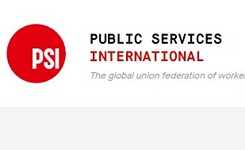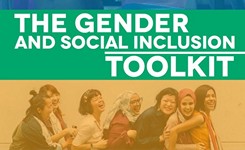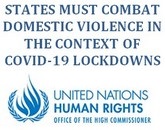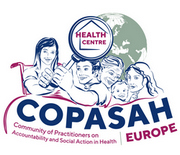
PSI – Public Services International – People Over Profit
Privatisation - PSI - The global union federation of workers in public services
By David Boys
There is more than enough wealth to deliver quality public services for all - if corporations and the very wealthy pay their fair share, and if governments invest and spend wisely instead of privatising in the interests of corporations and the wealthy.
Quality public services, provided to all, is the only way to achieve human rights, gender equality and social justice. These services also support the wider economy by providing public infrastructure, research and innovation, a healthy and skilled workforce, and strong and stable justice and regulatory institutions.

Making Rights Real for Future... book by Soon-Young Yoon (thriftbooks.com)
By Soon-Young Yoon and Krishanti Dharmaraj
ISBN: 1961302373
ISBN13: 9781961302372
Making Rights Real for Future Generations is a workbook on implementing the local implementation of human rights on a local level. This action guide is based on the recommendations of the Cities for CEDAW campaign launched in 2014 by the NGO Committee on the Status of Women, New York, to commemorate Beijing + 20. The goal of the campaign is to implement the United Nations Convention on the Elimination of all Forms of Discrimination against Women (CEDAW) to ensure gender equality and human rights for girls and women-in all their diversity. The workbook is intended for government officials as well as civil society leaders, including youth.
Source: WUNRN – 22.02.2024

Direct Link to Full 166-Page OECD 2024 Report: f95c5a74-en.pdf (oecd-ilibrary.org) – Click pdf.
Tackling the vulnerability challenge in the informal economy has been on the policy agenda since the mid-20th century (OECD/ILO, 2019[1]). Despite numerous commitments by many countries, progress towards the sustainable formalisation of economies is slow. Informal employment is extremely persistent and, for a large majority of workers in the informal economy, is often associated with low-paying work. In contrast, meagre formalisation gains are often reverted by national, regional and global crises, such as the COVID-19 pandemic (OECD, 2023[2]). Still today, nearly 2 billion workers, representing close to 60% of the world’s employed population, are in informal jobs and the majority are low-paid (OECD, 2023[2]).

l 21-Page 2024 CIVICUS Gender & Social Inclusion Toolkit:
https://www.civicus.org/documents/CIVICUS%20SOCIAL%20INCLUSION%20TOOLKIT.pdf

Direct Link to Full 62-Page 2024 UN Women Publication: empowering-women-building-sustainable-assets.pdf (unwomen.org)





























